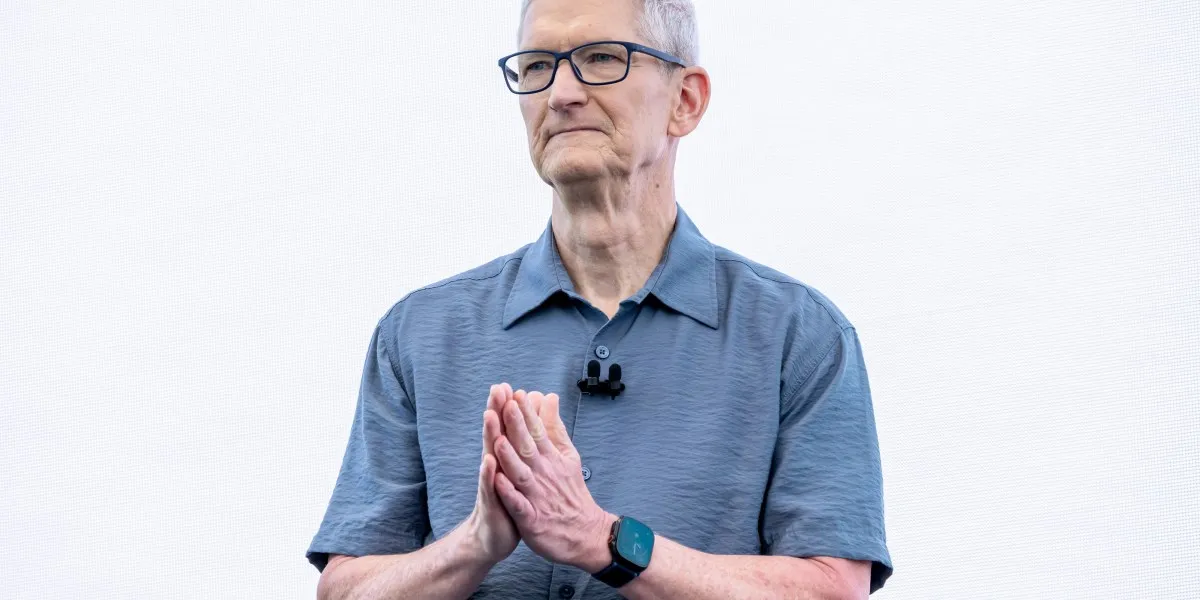
Recent announcements from Apple have sent shockwaves through the tech community, particularly with the retirement of Chief Operating Officer Jeff Williams after 27 years with the company. Just a day prior, Ruoming Pang, Apple’s top AI executive, departed to join Meta, and weeks earlier, notable AI researcher Tom Gunter also left the company. This series of high-profile exits has raised alarms about a potential leadership crisis at Apple.
Adding to the concern, Apple’s stock has dropped by 7.2% over the past year, contrasting sharply with the S&P 500, which has risen by 6.5%, and the Nasdaq, up 12.9%. These trends have illuminated some of Apple’s most pressing weaknesses, particularly its significant lag in integrating artificial intelligence (AI) into its products and services. Last year, Apple introduced Apple Intelligence, a version of AI that the company touted as uniquely its own. However, the reality has been less impressive.
Currently, Apple has downplayed its AI initiatives, relying on a partnership with OpenAI to enhance the capabilities of its virtual assistant, Siri. Reports suggest the company is considering partnerships with Anthropic and possibly acquiring Perplexity AI. For a tech giant like Apple, being behind competitors in AI innovation is akin to falling behind in internet technology during the year 2000. AI represents a transformative, general-purpose technology that has the potential to revolutionize the business landscape.
While Tim Cook has been widely regarded as one of the all-time great CEOs during his tenure since 2011, questions arise about his ability to navigate the AI revolution. Under Cook's leadership, Apple’s market capitalization skyrocketed from approximately $300 billion to an astonishing $3.2 trillion, marking a remarkable compound annual growth rate of 18.4% over 14 years. Many investors are unaware that Cook has generated significantly more shareholder wealth than his predecessor, Steve Jobs.
However, analysts like Craig Moffett of MoffettNathanson, who is known for his rare Sell recommendation on Apple stock, highlight a critical issue: “They haven’t produced a major new product outside of possibly the earbuds in a decade,” he states. While Cook's record is commendable, it has primarily been achieved through the execution of long-term strategies rather than groundbreaking product innovation.
With the emergence of AI, the question of product innovation becomes increasingly relevant. Since the departure of Jony Ive, Apple’s former design chief, in 2019—who is now collaborating with OpenAI—speculation has arisen regarding the development of new AI-centric devices. If Apple is working on innovative products, they remain tightly under wraps. Currently, Apple's offerings such as the Vision Pro goggles are niche products, and the HomePod and HomePod mini smart speakers have only seen modest success.
The shift towards AI could pose a threat to Apple's traditional smartphone-centric model. “There is this nagging question among investors,” Moffett observes, “which is increasingly causing disquiet that Apple is unprepared for something that transformational.”
While uncertainties loom, there remains the possibility that Cook could surprise industry watchers. Known for its secretive nature, Apple may unveil a groundbreaking device or service that could change the competitive landscape. If Cook successfully partners with or acquires a major AI company, he could reinforce his legacy as one of the greatest CEOs in history.
However, if these anticipated changes do not materialize soon—an outcome that seems increasingly likely—the Apple board of directors must consider the implications of a CEO who may not be suited for an era defined by AI innovation. The advent of AI signifies a new chapter, fundamentally different from the past 14 years, and Apple must evolve to meet these challenges head-on.